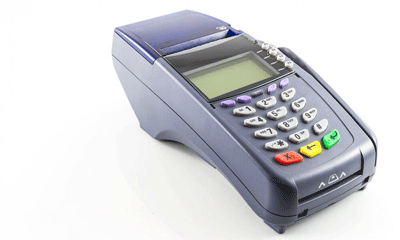
IN March 2016, the Reserve Bank of Zimbabwe governor John Mangudya called for an 80% cashless society in the next five years in order to move the country away from its heavy reliance on cash.
BY TATIRA ZWINOIRA
Yet, nearly two years into Mangudya’s directive on the use of plastic money, many foreign-owned retail businesses are still insisting on cash payment and flatly refusing to embrace point of sale (POS) machines or EcoCash.
Most of these foreign retailers are of Chinese, Indian and Nigerian origin.
Even with recent price increases ranging between 30 and 50% these foreign retailers continue to demand cash, some of them insisting on only US dollars.
While no known statistics have been made available on just how many foreigners are in the retail space, estimates say they own a huge chunk of the sector.
On Friday, Standardbusiness conducted a snap survey in downtown Harare where a large number of shops do not accept plastic money payments.
In one shop called Beauty Max, which sells beauty related products, we watched as one potential customer after another were denied use of EcoCash. The shop attendant only accepted cash or POS only for transactions exceeding $10.
- Chamisa under fire over US$120K donation
- Mavhunga puts DeMbare into Chibuku quarterfinals
- Pension funds bet on Cabora Bassa oilfields
- Councils defy govt fire tender directive
Keep Reading
Beauty Max, according to one of the workers, is owned by a Pakistani by the name Amar and is the one behind the zero EcoCash acceptance and POS machine payments for purchases of more than $10 only.
“We do not accept EcoCash. We only accept swipe and that is for transactions which are worth over $10,” the cashier said.
Further down the street, is a fabric store Kaymo Fabrics which is owned by Indian-born Mohammed Hassim, (according to one of the shop attendees).
The shop specialises in selling imported fabric and accepts only cash.
“We only accept cash my brother,” one of the shop attendees told this reporter.
Many Chinese retailers are also doing cash only transactions.
Although many retailers at the busy Gulf shopping mall accept EcoCash and swipe, most Chinese retailers here will take only cash.
One shop registered under the company Formalday Investments Private Limited is one such retailer insisting on cash payment.
The shop sells accessories that include kitchenware, cell phone pouches, and rat traps, among others products.
Here, EcoCash is accepted only for a few goods.
One customer who tried and failed to buy using plastic money was particularly livid.
“How can they not accept EcoCash or swipe? This is totally unfair and I don’t think it is legal,” he complained as he left the store.
“These Chinese guys keep to themselves and rarely show their faces,” said a taxi driver, who did not want to be named.
“Most of the shops at this complex are owned by Chinese nationals. You only see them in the shop towards end of day.”
Along Kaguvi Street, Standardbusiness visited a number of shops owned by Nigerian nationals and found that while most accept payments using POS machines and EcoCash others demand only US dollars.
Most of these shops sell motor spares and related products.
Government seems to have turned a blind eye to such activities. The only action taken followed reports mid last year that some Chinese retailers either issued receipts with no value added tax numbers or none at all.
This report resulted in the taxman shutting down a Chinese blanket manufacturing firm, Veleez, for circumventing their duty and tax obligations.
Such practices show that a large number of these foreign players are not paying taxes to government. There are also suspicions that this cash demand by these foreign retailers is meant to facilitate externalisation.
However, Chinese Federation of Zimbabwe deputy president Steve Zhao said that it was important to remember that while some Chinese retailers were indeed accepting only cash, even locally-owned retailers were also doing the same.
“We try and encourage the people to try and follow the country’s law by using all the plastic money platforms. As a federation, we are neither police nor the army, so we can only try and encourage people but we do not have the final rule to say you must,” he said.
No comment could be obtained from the Zimbabwe India Chamber of Commerce concerning the matter of how some Indian retailers were only demanding cash for their wares.
Confederation of Zimbabwe Retailers president Denford Mutashu said such practices by foreign retailers spoke of indiscipline in the sector but agreed with Zhao’s sentiments that the problem was widespread.
“While it is pronounced on foreign-owned shops because most of them import their wares, it is spread across the spectrum of the sector including locally-owned shops, both registered and unregistered. We have witnessed serious short changing of consumers and have engaged government on the matter as we seek to restore legacy (if I may borrow the term from the army) retailing and wholesaling in the country,” he said.
He said the reason behind such cash seeking practice had to do with sourcing foreign currency from the parallel market since there is a shortage of forex from the formal market, non-circulation of cash in the economy and cash not being easily remitted to suppliers.
Calls to Industry, Commerce and Enterprise Development minister Mike Bimha went unanswered.











